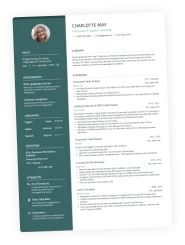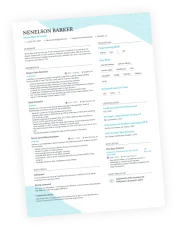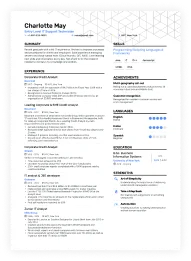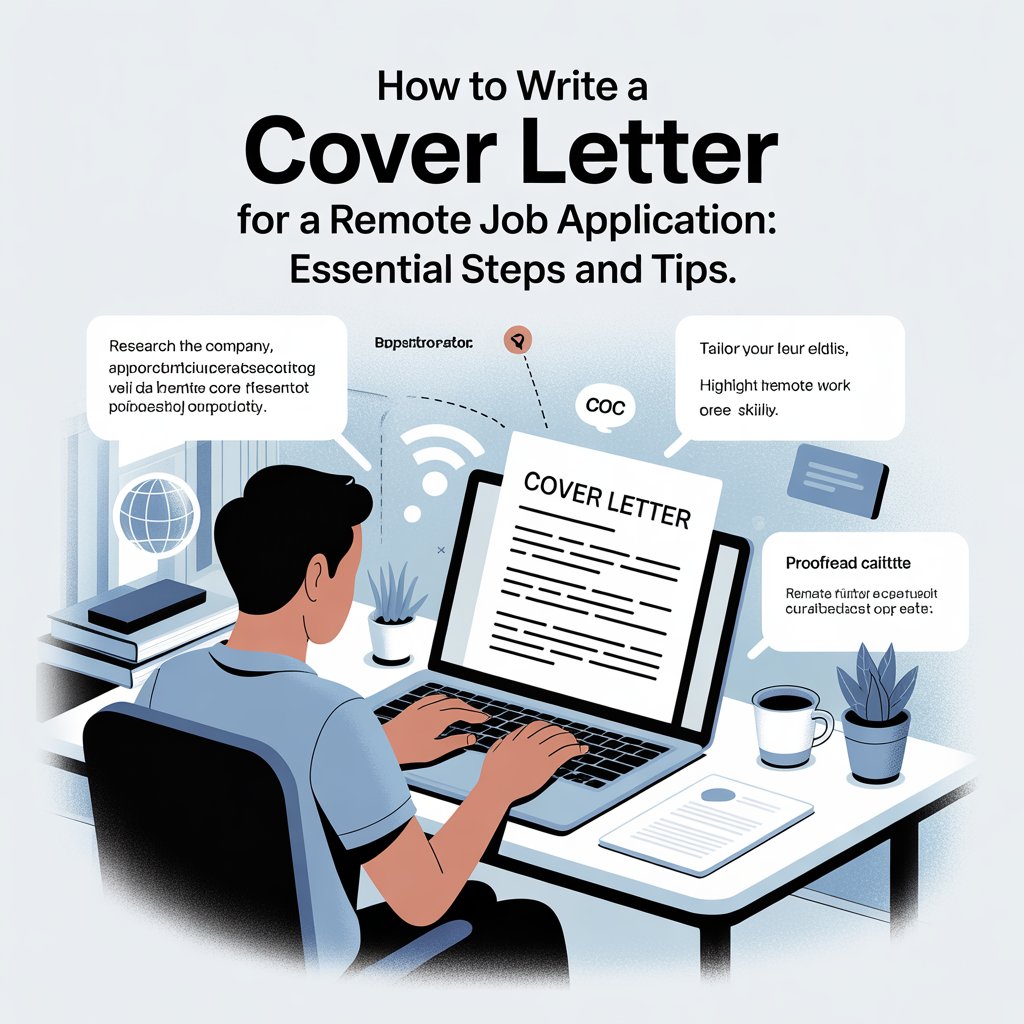When you’re just starting out in your career, writing a cover letter can feel overwhelming. But don’t worry, it’s an essential tool for job seekers, especially for freshers. A well-crafted cover letter can help you stand out, even if you don’t have much experience. It gives you a chance to show your personality, explain your goals, and highlight your skills. In this article, we’ll guide you through the process of creating a strong cover letter for fresher job seekers, complete with tips and examples to help you succeed.
Key Takeaways
- A cover letter is your chance to showcase your personality and career goals.
- Use a clear format that includes an introduction, body, and conclusion.
- Start strong by highlighting your most relevant skills or experiences.
- Tailor your letter to fit the specific industry and role you are applying for.
- Always proofread to avoid mistakes and ensure a professional tone.
Understanding the Importance of a Cover Letter for Fresher
Why a Cover Letter Matters
Okay, so you’re fresh out of school and wondering if a cover letter is even worth the effort? Let me tell you, it totally is. Think of your resume as a highlight reel – it shows what you’ve done. But the cover letter? That’s where you explain why you did it, and more importantly, why you’re the right person for this job. It’s your chance to connect the dots between your limited experience and the company’s needs. A cover letter lets you show off your personality, something a resume can’t really do. It’s also a great way to address any gaps or career changes that might not be clear from your resume alone. Basically, it’s your chance to make a first impression that sticks.
How It Complements Your Resume
Your resume is like a list of ingredients, and your cover letter is the recipe. The resume shows your skills and experience, but the cover letter explains how those things come together to make you the perfect candidate. It’s not just about repeating what’s on your resume; it’s about adding context and showing how your past experiences, even if they’re just from school projects or volunteer work, make you a good fit for the job. Think of it as telling a story – your resume provides the facts, and your cover letter provides the narrative. It’s also a chance to highlight specific achievements and explain how they relate to the job requirements. For example, if you led a successful group project in college, you can use the cover letter to explain how you managed the team, overcame challenges, and achieved your goals. This gives the employer a much better sense of your capabilities than just seeing “led group project” on your resume. Make sure to check out some cover letter examples to get a better idea.
What Employers Look For
Employers aren’t expecting you to have years of experience when you’re a fresher. What they are looking for is potential, enthusiasm, and a clear understanding of the job and the company. They want to see that you’ve done your research and that you’re genuinely interested in the opportunity. Your cover letter is your chance to show them that you’re not just sending out generic applications, but that you’ve taken the time to understand their needs and explain how you can contribute. They also want to see that you have good communication skills and that you can write clearly and concisely. Here’s a few things they look for:
- Enthusiasm for the role and the company
- Understanding of the company’s mission and values
- Clear and concise writing skills
A well-written cover letter can make a huge difference, even if you don’t have a ton of experience. It shows that you’re willing to go the extra mile and that you’re serious about the job. It’s your chance to stand out from the crowd and make a lasting impression. Don’t underestimate the power of a good cover letter – it could be the key to landing your dream job. It’s all about showing your interest in a job and how you can contribute.
Best Format for a Fresher Cover Letter
It’s easy to think that as a fresher, you can throw the usual cover letter rules out the window. Not so fast! Hiring managers still have expectations about how these things should look. Sticking to a standard format shows you’re professional and pay attention to detail. Let’s break down the best way to structure your cover letter.
Standard Structure Overview
The standard cover letter format includes a header, greeting, introduction, body paragraphs, and a conclusion. Think of it like a well-organized essay. Each part has a specific job to do, and when they work together, they create a compelling case for why you’re the right person for the job. It’s not rocket science, but it does require some attention to detail.
Essential Components to Include
Make sure your cover letter has these parts:
- Header: Your name, address, phone number, and email. Make it easy for them to contact you.
- Greeting: A professional salutation (e.g., “Dear Mr./Ms. [Last Name]”). Do your research and find the hiring manager’s name if possible. If not, “Dear Hiring Manager” is acceptable.
- Introduction: Grab their attention right away. State the position you’re applying for and a brief overview of why you’re a good fit.
- Body: This is where you sell yourself. Talk about your education, skills, and any relevant experience. Connect your qualifications to the job requirements.
- Conclusion: Reiterate your interest and thank them for their time. Include a call to action, like requesting an interview.
Tips for Formatting
Formatting can make or break your cover letter. Here are some tips to keep in mind:
- Use a professional font like Times New Roman, Arial, or Calibri. Keep the font size between 10 and 12 points.
- Set your margins to one inch on all sides. This gives your letter a clean, balanced look.
- Single-space your text and use a blank line between paragraphs. This makes it easier to read.
- Keep your cover letter to one page. Hiring managers don’t have time to read a novel.
- Proofread, proofread, proofread! Grammar and spelling errors are a huge turnoff.
Remember, your cover letter is your first impression. Make it count by following these formatting guidelines. A well-formatted letter shows that you’re detail-oriented and take your job application seriously.
Crafting an Engaging Cover Letter Introduction
How to Start Strong
First impressions matter, especially in a cover letter. Your opening paragraph is your chance to grab the reader’s attention and make them want to learn more about you. Avoid generic phrases like “I am writing to apply for…” Instead, try to open with a compelling statement that showcases your enthusiasm and understanding of the company or role. Think about what makes you unique and how you can immediately demonstrate your value. You might consider mentioning a recent company achievement that resonates with you or referencing a specific skill that aligns perfectly with the job description. Remember, the goal is to stand out from the stack of applications and make a memorable first impression. It’s also a good idea to address the hiring manager by name if possible; a little personalization goes a long way. If you’re unsure of the name, try checking LinkedIn or the company website. A generic greeting like “Dear Hiring Manager” is acceptable, but a personalized greeting shows you’ve done your research.
Highlighting Relevant Skills
After your opening hook, it’s time to briefly highlight the skills that make you a strong candidate. Don’t just list them; instead, weave them into a narrative that demonstrates your capabilities. Think about the key requirements of the job and how your skills align with those needs. For example, if the job requires strong communication skills, you might mention a time when you successfully presented a project or led a team discussion. If you have technical skills, briefly mention them and how you’ve used them in previous projects or coursework. The key is to be specific and provide context. Avoid vague statements like “I am a hard worker.” Instead, provide concrete examples that showcase your abilities. This section should be concise and focused, setting the stage for the more detailed information you’ll provide in the body of your cover letter. Remember to tailor your skills to the specific job description, highlighting the ones that are most relevant.
Setting the Tone for Your Letter
The tone of your cover letter is crucial for conveying your personality and professionalism. Aim for a balance between enthusiasm and respect, showing that you’re excited about the opportunity while maintaining a professional demeanor. Avoid overly casual language or slang, as this can come across as unprofessional. At the same time, don’t be afraid to let your personality shine through. Share your passion for the industry or the company’s mission, and let your enthusiasm be contagious. The tone should be confident but not arrogant, showcasing your skills and experience without sounding boastful. Consider the company culture when setting the tone. If it’s a more formal organization, a more traditional tone may be appropriate. If it’s a more relaxed and creative environment, you can afford to be a bit more conversational. Ultimately, the goal is to create a tone that is both engaging and professional, leaving the reader with a positive impression of your personality and qualifications. You can find a comprehensive cover letter guide online if you need more help.
The introduction is your chance to make a strong first impression. Keep it concise, engaging, and tailored to the specific job and company. Highlight your most relevant skills and set a tone that is both professional and enthusiastic.
Writing the Body of Your Cover Letter
Showcasing Your Education and Projects
When you’re a fresher, your education and academic projects are your biggest assets. Don’t just list your degree; elaborate on what you learned and how it applies to the job. Think about specific courses, research projects, or even group assignments where you developed skills relevant to the position. For example, if you’re applying for a data analyst role, talk about that statistics project where you analyzed a large dataset and drew meaningful conclusions. Quantify your achievements whenever possible. Instead of saying “I improved efficiency,” say “I improved efficiency by 15% using [specific tool or method]”.
Demonstrating Transferable Skills
Even without direct work experience, you’ve likely gained transferable skills from various activities. These are skills that can be applied across different roles and industries. Think about your involvement in clubs, volunteer work, or even personal projects. Did you lead a team? That’s leadership. Did you manage a budget? That’s financial management. Did you organize an event? That’s project management. The key is to identify these skills and explain how they can benefit the company. For example, “My experience as treasurer of the debate club taught me how to manage budgets effectively, a skill I believe would be valuable in this role.”
Connecting Your Goals with the Company
Employers want to know why you’re interested in their company specifically. Do your research and understand their mission, values, and recent projects. Then, explain how your career goals align with their objectives. This shows that you’re not just looking for any job; you’re genuinely interested in contributing to their success. For instance, “I’ve been following [Company Name]’s work in sustainable energy for some time, and I’m impressed by your commitment to innovation. My goal is to contribute to a company that prioritizes environmental responsibility, and I believe my skills in [relevant skill] would be a valuable asset to your team.” A strong cover letter should clearly articulate this connection.
It’s important to remember that the body of your cover letter is your chance to tell a story. Don’t just repeat your resume; expand on it. Show the employer who you are, what you’re passionate about, and how you can contribute to their organization. Make them believe that you’re the right person for the job, even if you don’t have years of experience.
Concluding Your Cover Letter Effectively
Creating a Memorable Closing Statement
Your closing statement is your last chance to make a good impression. Don’t waste it! Instead of a generic “Thank you for your time,” aim for something that sticks in the reader’s mind. Think about reiterating your enthusiasm for the role and briefly summarizing the key skills or experiences that make you a strong candidate. A strong closing can significantly increase your chances of getting an interview. It’s like the encore at a concert – leave them wanting more!
Including a Call to Action
Don’t just wait for the employer to contact you. Be proactive and include a clear call to action. This doesn’t mean being pushy, but rather expressing your eagerness to discuss the opportunity further. For example, you could say you’re looking forward to the possibility of an interview or that you’re available to provide additional information if needed. A simple statement expressing your availability for an interview shows you’re serious about the position. It’s a subtle way of guiding the employer towards the next step. Make sure to emphasize your value to the company.
Expressing Enthusiasm for the Role
Genuine enthusiasm can be contagious. Let the hiring manager know why you’re excited about the specific role and the company. Did something in the job description particularly resonate with you? Do you admire the company’s mission or values? Sharing your enthusiasm shows that you’ve done your research and that you’re not just applying for any job. It adds a personal touch and makes your application more memorable. A well-crafted ending can help you leave a lasting impression.
Tailoring Your Cover Letter for Different Industries
Understanding Industry Expectations
It’s important to know that a one-size-fits-all cover letter just won’t cut it. Different industries have different cultures, values, and expectations. What works for a tech company might be a total miss for a finance firm. Before you even start writing, do your homework. Research the specific industry you’re targeting. What are the key skills they value? What kind of language do they use in their job postings and company website? Understanding these nuances will help you craft a cover letter that speaks directly to their needs.
Adapting Language and Tone
Once you understand the industry’s expectations, it’s time to adapt your language and tone. For example, if you’re applying to a startup, a more casual and enthusiastic tone might be appropriate. You can show your enthusiasm for the role by using action verbs and highlighting your passion for innovation. On the other hand, if you’re applying to a more traditional company, like a bank or a law firm, you’ll want to use a more formal and professional tone. Avoid slang or overly casual language, and focus on showcasing your qualifications and experience in a clear and concise manner.
Here’s a quick guide:
- Tech: Innovative, agile, problem-solving
- Finance: Analytical, detail-oriented, risk management
- Healthcare: Compassionate, patient-focused, ethical
- Creative: Imaginative, original, artistic
Highlighting Relevant Experiences
This is where you really need to connect the dots for the hiring manager. Don’t just list your skills and experiences; explain how they’re relevant to the specific industry and role. If you’re applying for an IT position, for example, highlight any projects or coursework that demonstrate your technical skills and problem-solving abilities. You can also mention any relevant certifications or training you’ve completed. If you’re switching industries, focus on transferable skills and explain how your previous experience can be applied to the new role. Remember to effectively communicate your relevant skills and achievements.
Tailoring your cover letter shows that you’ve taken the time to understand the company and the role, and that you’re genuinely interested in the opportunity. It’s a small effort that can make a big difference in your job search.
Common Mistakes to Avoid in a Fresher Cover Letter
Grammar and Spelling Errors
It’s easy to overlook small errors, especially after spending hours crafting your cover letter. However, grammar and spelling mistakes can create a negative impression on hiring managers. Always proofread your cover letter carefully before submitting it. Consider using online tools like Grammarly or asking a friend or family member to review it for you. These errors can undermine your credibility, suggesting a lack of attention to detail.
Using an Informal Tone
While it’s important to let your personality shine through, maintaining a professional tone is crucial. Avoid using slang, contractions, or overly casual language. Remember, your cover letter is a formal introduction to a potential employer. A good rule of thumb is to imagine you’re speaking to the hiring manager in person; would you use that same language? If not, revise your tone.
Neglecting Personalization
A generic cover letter that could be sent to any company is a major red flag. Hiring managers want to see that you’ve taken the time to research their organization and understand their specific needs. Personalize your cover letter by:
- Addressing the hiring manager by name (if possible).
- Mentioning specific projects or initiatives that interest you.
- Explaining how your skills and experiences align with the company’s values and goals.
Failing to personalize your cover letter demonstrates a lack of genuine interest in the position and the company. It suggests that you’re simply sending out mass applications without truly considering whether you’re a good fit. Take the time to tailor each cover letter to the specific job and organization. This shows that you’re serious about the opportunity and willing to put in the effort.
To avoid these mistakes, remember to proofread carefully, maintain a professional tone, and personalize each cover letter. This will help you make a strong first impression and increase your chances of landing an interview. Remember to check out cover letter header for more tips.
Examples of Effective Cover Letters for Freshers
General Cover Letter Example
Let’s face it, seeing examples can really help when you’re trying to figure out how to write something. A general cover letter example gives you a solid foundation. It shows you the basic structure and the kind of language to use. Think of it as a template you can adapt. It’s not about copying word-for-word, but understanding the flow and the key elements that make a cover letter effective. You can then tweak it to fit your specific situation and the job you’re applying for. It’s a great starting point to avoid staring at a blank page.
Industry-Specific Cover Letter Samples
Okay, so you’ve got the general idea. Now, let’s get specific. Industry-specific cover letter samples are gold. They show you how to tailor your letter to a particular field. For example, a cover letter for a tech job will sound different from one for a marketing role. These samples highlight the skills and experiences that are most valued in that industry. They also use the kind of language that’s common in that field. It’s like having an insider’s guide to what employers are looking for. This is where you really show that you’ve done your research and understand the industry.
Analyzing Successful Letters
Why did that cover letter get the interview? What made it stand out? Analyzing successful letters is like reverse-engineering a winning formula. Look at the opening paragraph – did it grab your attention? How did the candidate showcase their skills? Did they connect their goals with the company’s mission? Pay attention to the tone, the structure, and the overall message. By dissecting what works, you can learn how to craft a compelling opening that gets noticed. It’s about understanding the why behind the what.
Analyzing successful cover letters involves identifying the key elements that made them effective. This includes examining the structure, tone, and content to understand how the candidate presented themselves and their qualifications in a way that resonated with the employer.
Here are some things to look for:
- Clarity: Is the message easy to understand?
- Relevance: Does it directly address the job requirements?
- Enthusiasm: Does the candidate seem genuinely interested in the role?
How to Write a Cover Letter with No Experience
It’s a common hurdle: crafting a compelling cover letter when you feel like you have nothing to put on it. Don’t worry, it’s totally doable! The key is to shift your focus and highlight what you do have. Think skills, education, and enthusiasm. Let’s break it down.
Focusing on Education and Skills
Your education is your superpower. Really dig into your coursework. What projects did you excel at? What skills did you develop? Think about group projects, presentations, research papers – anything that showcases teamwork, communication, or problem-solving. Even seemingly small things can be spun into valuable assets. For example, managing a group project demonstrates leadership and organizational skills. Acing a research paper shows analytical abilities and attention to detail. Don’t be shy about highlighting these! You can also mention your career objectives in the cover letter.
- List relevant coursework.
- Describe key projects and your role.
- Quantify achievements whenever possible (e.g., “Improved team efficiency by 15% through effective delegation”).
Utilizing Volunteer Work
Volunteer experience, even if it seems unrelated, can be a goldmine. It demonstrates initiative, a willingness to help others, and often develops valuable soft skills. Did you volunteer at an animal shelter? That shows compassion and responsibility. Did you help organize a community event? That highlights organizational and communication skills. Think about what you learned and how those skills can transfer to the job you’re applying for.
Volunteer work speaks volumes about your character and work ethic. It shows you’re not just looking for a paycheck; you’re also interested in contributing to something bigger than yourself. This can be a major plus in the eyes of an employer.
Highlighting Relevant Coursework
Go beyond simply listing your courses. Explain how the knowledge and skills you gained are directly applicable to the job. Did you take a marketing class? Talk about the marketing principles you learned and how you can apply them to help the company reach its target audience. Did you study data analysis? Explain how you can use your skills to analyze data and provide insights to improve business decisions. The more specific you can be, the better. Show them you’ve already started thinking about how you can contribute. You can also look at cover letter examples to get an idea of how to do this.
- Identify key skills from the job description.
- Connect those skills to specific coursework.
- Provide examples of how you applied those skills in your studies.
The Role of Personality in Your Cover Letter
Showing Authenticity
It’s easy to fall into the trap of trying to be who you think the employer wants. However, authenticity shines through. Let your genuine self come across in your writing. This doesn’t mean being unprofessional, but rather allowing your unique voice and perspective to be evident. Think about what makes you, you, and how that translates to the role.
Balancing Professionalism and Personality
Finding the right balance is key. You want to show personality without sacrificing professionalism. Avoid slang, overly casual language, or inappropriate humor. Instead, focus on injecting your enthusiasm and passion for the role and the company. Share anecdotes that highlight your character and work ethic, but keep them concise and relevant. For example, instead of just saying you’re a “team player,” describe a specific situation where you collaborated effectively with others. This is a great way to show transferable skills.
Engaging the Reader
A cover letter shouldn’t read like a dry recitation of your resume. Aim to capture the reader’s attention and make them want to learn more about you. Use storytelling techniques to illustrate your skills and experiences. Ask yourself: What makes my story unique? What can I share that will make me stand out from other applicants? By showing your personality, you create a connection with the reader and make your application more memorable.
Remember, your cover letter is an opportunity to show who you are beyond your qualifications. It’s a chance to make a personal connection and demonstrate why you’re the right fit for the company culture. Don’t be afraid to let your personality shine through, while maintaining a professional tone.
Utilizing Feedback to Improve Your Cover Letter
Seeking Input from Peers
Getting another set of eyes on your cover letter can make a huge difference. Ask friends, family, or classmates to read through it. Sometimes, a fresh perspective can catch errors or suggest improvements you might have missed. Don’t be afraid to ask for honest opinions; constructive criticism is invaluable at this stage. It’s also a good idea to give them specific questions to answer, like:
- Is the tone appropriate?
- Is my experience clearly explained?
- Does it sound like me?
Using Online Resources
There are tons of online tools and resources that can help you refine your cover letter. Grammar checkers can catch typos and suggest better phrasing. Websites like Grammarly or Hemingway Editor can help improve clarity and conciseness. Also, look for cover letter examples specific to the industry you’re targeting.
Revising for Clarity and Impact
Revision is key. After getting feedback and using online tools, take the time to rewrite and refine your cover letter. Make sure your sentences are clear and easy to understand. Cut out any unnecessary words or phrases. The goal is to make a strong impression quickly.
Remember, your cover letter is often the first impression you make on a potential employer. Taking the time to revise and improve it can significantly increase your chances of landing an interview.
Key Takeaways for Crafting a Cover Letter for Fresher
Summarizing Essential Tips
Okay, so you’re wrapping up your cover letter. What’s next? Well, let’s recap the big stuff. First, always tailor your cover letter to the specific job. Don’t just send out the same generic letter to every company. Show them you’ve done your homework and understand what they’re looking for. Next, highlight your skills and how they match the job requirements. Even if you don’t have tons of experience, focus on what you can do. And finally, proofread, proofread, proofread! Nothing kills a good impression faster than typos and grammatical errors. A well-crafted cover letter can significantly increase your chances of landing an interview.
Encouraging Personal Reflection
Take a moment to think about what makes you unique. What are your strengths? What are you passionate about? How can you bring those qualities to the job? Your cover letter isn’t just a list of qualifications; it’s a chance to show your personality and let the employer see who you are as a person. Don’t be afraid to let your enthusiasm shine through. Think about your career objectives and how this job fits into your long-term goals. It’s about showing them you’re not just looking for any job, but this job.
Emphasizing Continuous Improvement
Your cover letter is never truly “done.” Always be open to feedback and look for ways to improve. Ask friends, family, or career counselors to review your letter and offer suggestions. Use online resources and examples to get ideas and inspiration. And remember, the more you practice, the better you’ll become at writing effective cover letters. Don’t get discouraged if you don’t get it perfect right away. Keep learning, keep refining, and keep pushing yourself to be better. Here’s a few things to keep in mind:
- Seek feedback from multiple sources.
- Regularly update your cover letter with new skills and experiences.
- Stay informed about industry trends and adapt your letter accordingly.
Writing a great cover letter is a skill that develops over time. The more you work at it, the better you’ll get. Don’t be afraid to experiment, try new things, and learn from your mistakes. The goal is to create a cover letter that truly represents you and showcases your potential.
When writing a cover letter as a fresh graduate, keep it simple and clear. Start by introducing yourself and explaining why you want the job. Highlight your skills and experiences that relate to the position. Make sure to show your enthusiasm and how you can help the company. Finally, end with a strong closing statement. For more tips and tools to help you land your dream job, visit our website today!
Wrapping It Up
In conclusion, crafting a strong cover letter is key for freshers stepping into the job market. It’s your chance to show who you are beyond your resume. Remember to keep it simple and genuine. Highlight your goals, share a bit of your personality, and connect your experiences to the job. Don’t stress too much about having tons of experience; focus on what you can bring to the table. And always proofread before sending it off. With these tips in mind, you’ll be better prepared to make a great impression and hopefully land that interview.
Frequently Asked Questions
What is the purpose of a cover letter for freshers?
A cover letter helps you introduce yourself to employers and explain why you are a good fit for the job, even if you don’t have much experience.
How should I format my cover letter?
Your cover letter should have a clear structure: a header, greeting, introduction, body paragraphs, and a conclusion.
What should I include in my cover letter if I have no work experience?
Focus on your education, skills, and any volunteer work or projects that relate to the job you’re applying for.
How can I make my cover letter stand out?
Start with a strong opening, show your personality, and connect your goals with the company’s mission.
What common mistakes should I avoid in my cover letter?
Be careful with grammar and spelling errors, avoid using an informal tone, and make sure to personalize your letter for each job.
Can I use the same cover letter for different jobs?
It’s best to tailor your cover letter for each job application to show that you understand the specific role and company.
How long should my cover letter be?
Aim for about one page, keeping it concise while still covering all important points.
What should I do after sending my cover letter?
Follow up with the employer after a week or two to express your continued interest in the position.








